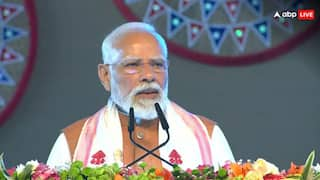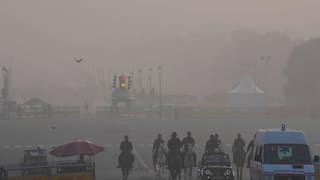Marriage Can Only Take Place Between Opposite Genders: RSS On Same-Sex Marriage
"Marriage can only take place between persons of opposite genders," said Rashtriya Swayamsevak Sangh General Secretary Dattatreya Hosabale

New Delhi: Rashtriya Swayamsevak Sangh General Secretary Dattatreya Hosabale on Tuesday said that the RSS agreed with the government's stance on same-sex marriage. "Marriage can only take place between persons of opposite genders," he said, reported news agency PTI.
The Centre on Sunday filed an affidavit in the Supreme Court opposing the legal recognition of same-sex marriage in the country. In its affidavit, the Centre said that same-sex relationships and heterosexual relationships are clearly distinct classes that cannot be treated identically.
The Centre apprised the top court that living together as partners by same-sex individuals, which is decriminalised now, is not comparable with the Indian family unit concept of a husband, a wife and children born out of the union.
Marriage can only take place between persons of opposite genders, Sangh agrees with govt view on same-sex marriage: Hosabale
— Press Trust of India (@PTI_News) March 14, 2023
It further mentioned that statutory recognition of marriage limited to heterosexual in nature, is the norm throughout history and is foundational to both the existence and continuance of the State. It said that there is no violation of fundamental rights due to the non-recognition of same-sex marriages.
One of the petitions filed in the Supreme Court has sought an interpretation of the Special Marriage Act, 1954 in a gender-neutral manner where a person is not discriminated against due to his sexual orientation.
ALSO READ: 'Institution Of Marriage A Matter Of Policy': Law Minister Kiren Rijiju On Same-Sex Marriage
The top court's five-judge Constitution bench, in a path-breaking unanimous verdict delivered on September 6, 2018, held that consensual sex among adult homosexuals or heterosexuals in a private space is not a crime while striking down a part of the British-era penal law that criminalised it on the ground that it violated the constitutional right to equality and dignity.






































